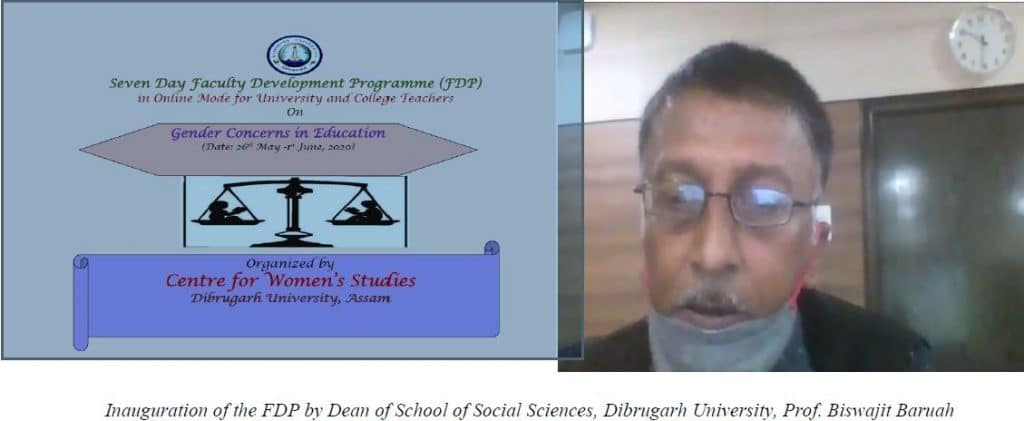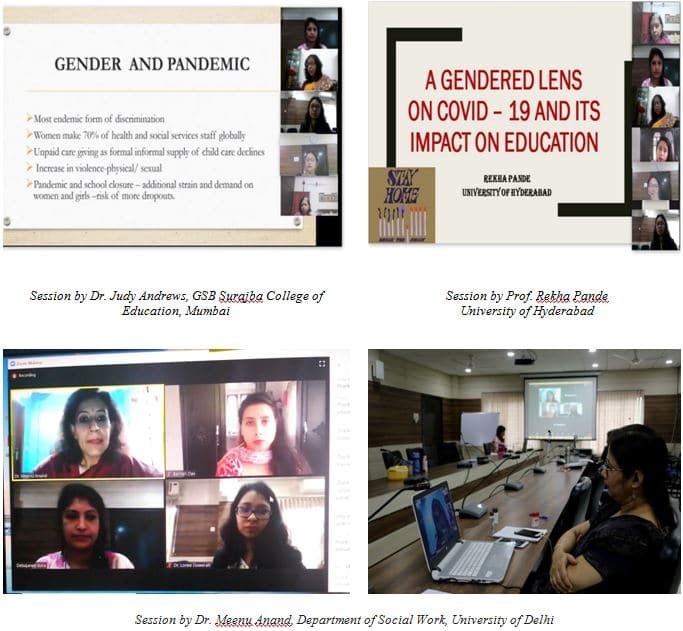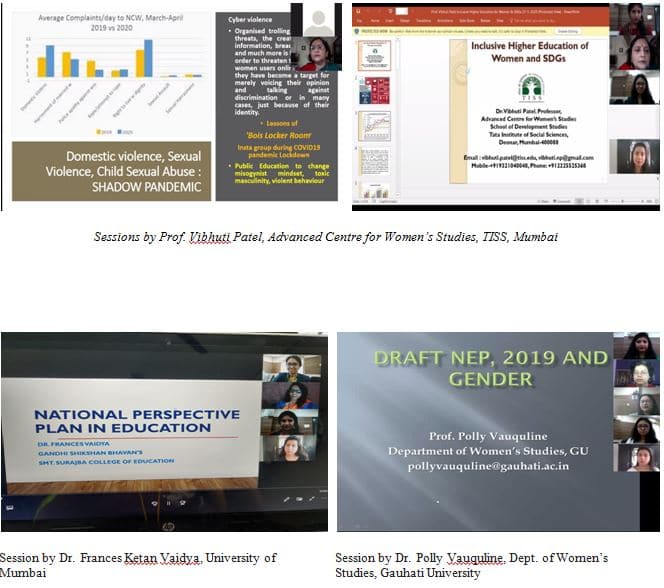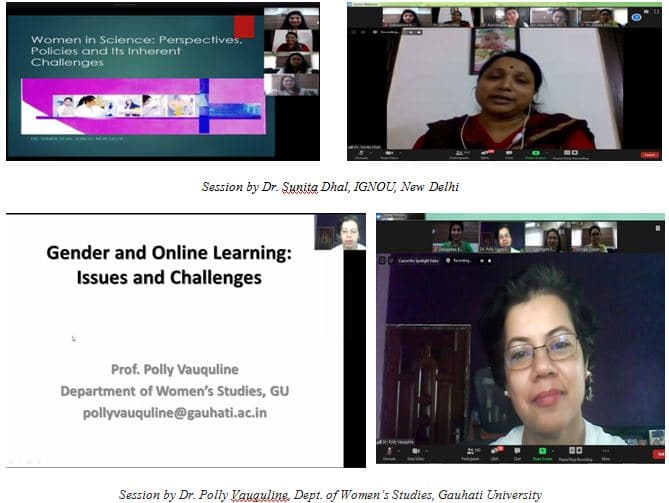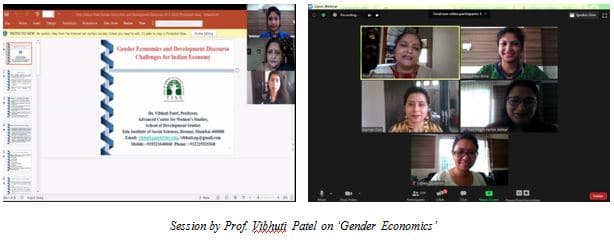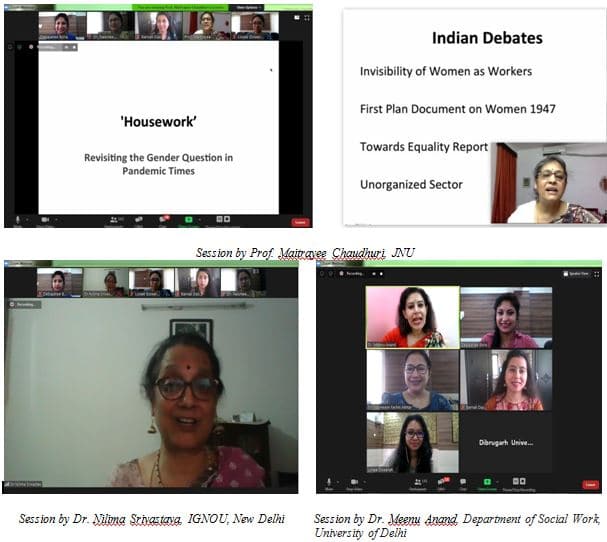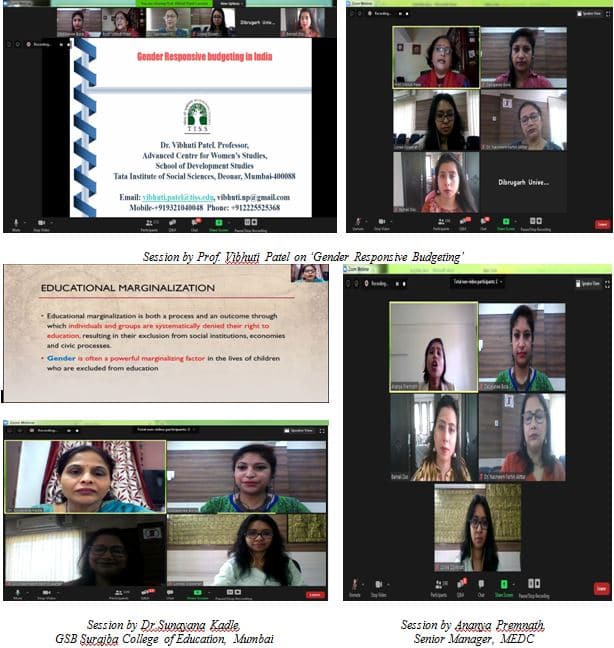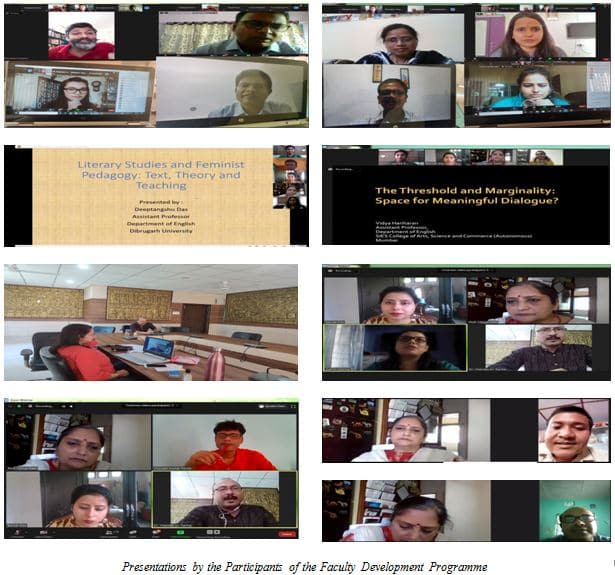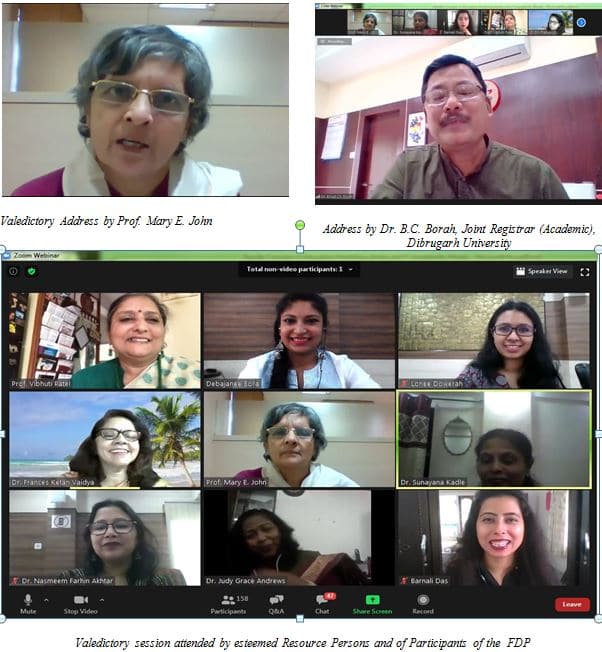The Centre for Women’s Studies, Dibrugarh University organized a Seven Day Faculty Development Programme (FDP) in Online Mode for University and College Teachers from the 26th of May to the 1st of June, 2020. A total number of 226 participants from across the country registered for the Course. This was the first ever online programme hosted by the Centre. The programme was spread across 18 sessions engaged by 12 resource persons from JNU, New Delhi, Hyderabad Central University TISS Mumbai, IGNOU, Delhi, CWDS, Delhi and Delhi University. The Dean of School of Social Sciences, Dibrugarh University, Prof. Biswajit Baruah inaugurated the programme on the 26th of May, 2020.
The sessions of the programme problematised the gendered language of the Covid19 pandemic. It questioned the gendered approach to the new normal of the pandemic. The programme discussed the socio- economic inequalities that have been surcharged with the pandemic of Covid19. The predicament of Covid19 has aggravated the various forms of gender based violence and also with the interlinked boundaries of private and public has further created complex situations for women.
It posited the relearning with our dealing and association with education. With a detailed discussion on total literacy mission, it opened up for a discussion and dialogue of the gendered approach towards education. The sessions had meticulously dealt on the intricacies of gender and the National Perspective Plan for Education. Also, by complicating the positions of women in science and technology and also the issues and challenges of digital learning, the programme had introduced the participants with the magnitudes of the gendered approach towards education.
In order to capture the debates on women and the perspectives of paid and unpaid economy, the sessions had put forth the patriarchal nature of development. By putting forth the debates around gender economics and gender budgeting, it had argued for a gender sensitive approach towards budgeting and economy.
The programme had set a platform for teachers across various disciplines to have an in-depth orientation on gender, women and work, gender and education, gender economics, gender budgeting. It had provided training to the teachers for a gender sensitive approach towards their respective disciplines as well as to the society at large. A few of the participants made presentations in two sessions which were chaired by Dr. Chandan Kr. Sarma, Head, Dept. of History.
The programme came to an end with the Valedictory Address delivered by Prof. Mary E. John, Former Director Centre for Women’s Development Studies, New Delhi.
